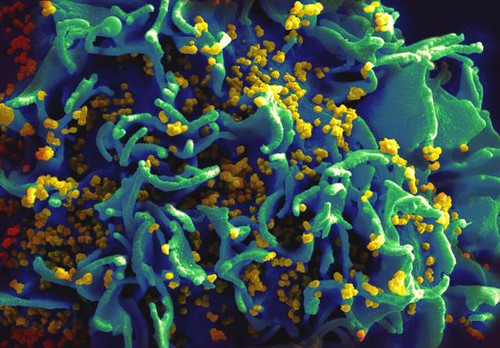Once considered an imminent death sentence, HIV has become a more treatable, albeit chronic, disease in recent years. Patients with well-managed HIV can now live long and largely normal lives, if they have stamina. The effort required to keep the virus contained with a daily cocktail of pills has been significant. But that might change: Two new treatments hold great promise in the fight against HIV: one that replaces those pills, and another that may eventually lead to disease prevention.
Testing first with pills
The FDA recently approved Cabenuva, the first extended-release injectable HIV treatment. Developed by ViiV Healthcare, Cabenuva is administered once a month and is intended as a long-acting replacement to the current regimens of patients whose HIV is already well-controlled.
Before beginning treatment with Cabenuva, patients would test the effects of the components in pill form. One of Cabenuva’s main components, cabotegravir, was approved at the same time under the name Vocabria. The other, rilpivirine, is already available under the brand name Edurant. After a month of taking the pills, doctors will evaluate how well patients are tolerating them and then decide whether to move forward with the extended-release shots.
John Farley, MD, MPH, director of the Office of Infectious Diseases in the FDA’s Center for Drug Evaluation and Research, discussed this medicine’s potential in a news release. “Currently, the standard of care for patients with HIV includes patients taking daily pills to adequately manage their condition. This approval will allow some patients the option of receiving once-monthly injections in lieu of a daily oral treatment regimen.”
Cabenuva’s approval comes after two clinical trials that targeted virologically suppressed HIV patients. Tested on more than 1,100 people in 16 countries, the trial lasted for 48 weeks. By the end of the trial, the patients still showed virologic suppression. The most common reactions reported included “injection site reactions, fever (pyrexia), fatigue, headache, musculoskeletal pain, nausea, sleep disorders, dizziness and rash.” Serious reactions were reported by fewer than 1% of recipients. Those included abdominal cramping, oral numbness blood pressure changes occurring within minutes after injection.
Using antibodies to ward off infection
The NIH recently revealed the results of the Antibody-Mediated Prevention (AMP) studies, a National Institute of Allergy and Infectious Diseases (NIAID) program that is investigating the use of antibodies to prevent HIV. The AMP studies included two trials held in Brazil, Peru, Switzerland, and the US. These lasted 80 weeks and covered a combined 4,623 participants. No safety concerns were raised.
The treatment, an injection given once every eight weeks, “safely and effectively prevented acquisition of HIV strains sensitive to that antibody.” They found the vaccine to be 75% effective at preventing those strains. The overall long-term infection rates weren’t affected, but the NIAID expressed confidence that this marks progress toward achieving broader results.
NIAID Director Anthony S. Fauci, MD said that results from the AMP studies proved that an administered antibody can protect people from acquiring susceptible HIV strains. Insights from the trials, he said in the press release, are laying “the foundation for future development of long-acting antibody-based HIV prevention tools and, ultimately, a vaccine.”
The take home
Cabenuva could change the lives of the 1.2 million Americans with HIV, offering much less burdensome treatment schedules than existing options. The NIH’s antibody trial could pave the way to vaccination, and perhaps keep that 1.2 million figure from growing.
Clarification: The original version of this story contained a subhead that referred to patients receiving ‘A shot in the arm.” To be clear: The two intramuscular injections (cabotegravir and rilpivirine) are administered in the buttocks during the same clinic visit.
Sean Marsala is a health writer based in Philadelphia, Pa. Passionate about technology, he can usually be found reading, browsing the internet and exploring virtual worlds.

















You must be logged in to post a comment Login